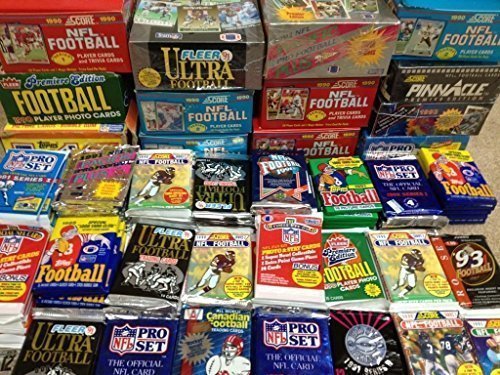Christian mom or dad, could you use some encouragement and support? Put your ear buds in for this Christian parenting podcast and get practical, faith-based inspiration through all stages of parenting — raising toddlers, navigating the school-age years, preparing for puberty, and seeing your teen soar with confidence. Hosted by Danny Huerta, in every 8 to 15 minute episode, you’ll hear parenting experts share Biblical truths, effective parenting techniques, and useful resources that will hel ...
…
continue reading
Player FM - Internet Radio Done Right
4,825 subscribers
Checked 12d ago
Added eight years ago
เนื้อหาจัดทำโดย Vermont Public เนื้อหาพอดแคสต์ทั้งหมด รวมถึงตอน กราฟิก และคำอธิบายพอดแคสต์ได้รับการอัปโหลดและจัดหาให้โดยตรงจาก Vermont Public หรือพันธมิตรแพลตฟอร์มพอดแคสต์ของพวกเขา หากคุณเชื่อว่ามีบุคคลอื่นใช้งานที่มีลิขสิทธิ์ของคุณโดยไม่ได้รับอนุญาต คุณสามารถปฏิบัติตามขั้นตอนที่แสดงไว้ที่นี่ https://th.player.fm/legal
Player FM - แอป Podcast
ออฟไลน์ด้วยแอป Player FM !
ออฟไลน์ด้วยแอป Player FM !
But Why: A Podcast for Curious Kids
ทำเครื่องหมายทั้งหมดว่า (ยังไม่ได้)เล่น…
Manage series 1446486
เนื้อหาจัดทำโดย Vermont Public เนื้อหาพอดแคสต์ทั้งหมด รวมถึงตอน กราฟิก และคำอธิบายพอดแคสต์ได้รับการอัปโหลดและจัดหาให้โดยตรงจาก Vermont Public หรือพันธมิตรแพลตฟอร์มพอดแคสต์ของพวกเขา หากคุณเชื่อว่ามีบุคคลอื่นใช้งานที่มีลิขสิทธิ์ของคุณโดยไม่ได้รับอนุญาต คุณสามารถปฏิบัติตามขั้นตอนที่แสดงไว้ที่นี่ https://th.player.fm/legal
But Why is a show led by kids. They ask the questions and we find the answers. It’s a big interesting world out there. On But Why, we tackle topics large and small, about nature, words, even the end of the world. Know a kid with a question? Record it with a smartphone. Be sure to include your kid's first name, age, and town and send the recording to questions@butwhykids.org!
…
continue reading
306 ตอน
ทำเครื่องหมายทั้งหมดว่า (ยังไม่ได้)เล่น…
Manage series 1446486
เนื้อหาจัดทำโดย Vermont Public เนื้อหาพอดแคสต์ทั้งหมด รวมถึงตอน กราฟิก และคำอธิบายพอดแคสต์ได้รับการอัปโหลดและจัดหาให้โดยตรงจาก Vermont Public หรือพันธมิตรแพลตฟอร์มพอดแคสต์ของพวกเขา หากคุณเชื่อว่ามีบุคคลอื่นใช้งานที่มีลิขสิทธิ์ของคุณโดยไม่ได้รับอนุญาต คุณสามารถปฏิบัติตามขั้นตอนที่แสดงไว้ที่นี่ https://th.player.fm/legal
But Why is a show led by kids. They ask the questions and we find the answers. It’s a big interesting world out there. On But Why, we tackle topics large and small, about nature, words, even the end of the world. Know a kid with a question? Record it with a smartphone. Be sure to include your kid's first name, age, and town and send the recording to questions@butwhykids.org!
…
continue reading
306 ตอน
ทุกตอน
×Are all cats afraid of water? Do wild cats bury their poop? How are the cats that live in your house related to lions and tigers roaming in the wild? We take a walk in the woods with wildlife biologist Emily Carollo. She works with a conservation and research organization called Panthera that’s dedicated to helping all 40 species of wild cats in the world. Why do cats live in different habitats? What do cats eat? Why do they chase mice? Why do cats' eyes glow in the dark? Why do some cats roar and some purr? Do cats have their own language? Download our learning guides: PDF | Google Slide | Transcript…
If you could be a superhero, what would you want your superpower to be–and what would you call yourself? That’s what we asked kids for this special end-of-year episode, and we got some amazing answers! Some kids want to fly. Some want to go back in time. One wants to be able to draw everything perfectly the first time. And a surprising number of kids want a super ability to do math! Stories about humans with special abilities have been around for as long as humans have been telling stories. But the word superhero is only about 120 years old. The first known use of the word was in 1899, but the term became more mainstream in 1930s comic books and movies. Now, superheroes are all over the pages of books and both the small and big screen. Give this episode a listen and think about what YOUR superpower might be! Download our learning guides: PDF | Google Slide | Transcript…
Who decides what robots look like? How do robots work and move? How are they controlled? And are robots alive? We tackle all your robot questions in this episode, and we’re taking a field trip to a local factory that uses hundreds of robots to help humans do their jobs. GlobalFoundries, in Essex Junction, Vermont makes microchips that go in all kinds of electronics. In fact, if your adults have a smartphone, more than likely it has a chip made at this very facility. Engineers Adrien Plouffe and Lucy White work with the robots at GlobalFoundries and answer your questions about robots, including: Why are robots made of metal? Why do people like robots? Do robots cry? Download our learning guides: PDF | Google Slide | Transcript…
Why can’t animals talk to us? Are humans the only animals that can talk? Can different species of animals communicate with each other? We learn about animal communication with Arik Kershenbaum, author of Why Animals Talk: The New Science of Animal Communication. He studies wolves, gibbons, dolphins and hyrax to learn how they communicate. Also in this episode: why are parrots able to speak human words but other birds can’t? Download our learning guides: PDF | Google Slide | Transcript…
Why do we have to poop? Why does fiber make you poop? Why is poop brown? Why does it smell so bad? Why do farts smell bad, too? Yup, we’re going there! In this episode, Mary Roach, author of Gulp: Adventures on the Alimentary Canal , answers your questions about those things that we’re told not to talk about in polite company: poop and farts. We learn how astronauts use the bathroom in space and how many germs are in one ounce of poop. Download our learning guides: PDF | Google Slide | Transcript…
Why do we worry and how can we deal with it? Why do we get anxious? Where does anxiety come from? Anxiety or worry is a hard feeling to overcome, but it’s a universal human emotion. In this episode, we explore anxiety with clinical psychologist Eileen Kennedy-Moore, also known as Dr. Friendtastic . She helps us understand why moderate anxiety is useful and necessary. But too much worry can prevent you from learning new things or doing activities that could be fun. And she has some tips for how to overcome anxious feelings. Download our learning guides: PDF | Google Slide | Transcript…
B
But Why: A Podcast for Curious Kids

Election Day in the United States is November 5 this year and election officials across the country are already hard at work setting up polling places and processing mail in ballots. Even if you’re not old enough to vote, you can be part of the process. You can watch voting machines be tested, observe the polling places on Election Day, or even watch votes be counted once the polls close. (Sometimes there are livestreams so you can watch from the comfort of your own home!) For this episode on how voting works, But Why stopped by the South Burlington City Hall on the day vote tabulators were being prepared. Plus we meet Vermont’s top election official, Secretary of State Sarah Copeland Hanzas. Have you asked an adult to take you to the polls yet? Download our learning guides: PDF | Transcript…
What is voting? Why (and how) do people vote? Why can’t kids vote? Why are there red and blue states (not to mention donkeys and elephants representing political parties)? How can someone win the most votes but still lose the presidential election? We’re answering kid questions about elections with Bridgett King, a political scientist at the University of Kentucky. Download our learning guides: PDF | Transcript…
A new food-focused kids podcast is here. It’s called ChopChop and it’s part of a non-profit committed to getting kids and families to cook and eat meals together. Explore tasty recipes on their website! They also publish a quarterly magazine in English and Spanish (a good way to practice a second language). We contributed to their very first episode and we have to say, it’s the corniest episode you’re ever going to listen to! Our contribution was the science of how popcorn pops. We hope you gain some kernels of knowledge from this episode! We had an ear full.…
Why do we have bones? How do they grow–and how do they know when to stop growing? How many do we have in our bodies? And when we break our bones, how do they heal? What do casts do? And how do you know if you’ve broken a bone? Broken bones are a common occurrence in kids. Up to 40% of girls and up to 50% of boys will break a bone in their lifetime. In this episode, we learn about the role of bones in our body and how to deal with a fractured bone with Melissa Raddatz, a family nurse practitioner at Duke Health System in North Carolina. The first part of this episode is all about bones in general, and we shift to broken bones for the second half. Download our learning guides: PDF | Google Slide | Transcript…
How do wind turbines work? How are wind turbines made? What will our energy picture look like in the future? We’re taking a deep dive into wind power, and trying to make the technology understandable, with Josh Castonguay of Vermont utility Green Mountain Power. Download our learning guides: PDF | Google Slide | Transcript…
Come along to learn all about the wriggling worms that live in the dirt beneath your feet. Earthworms are everywhere, and there are many species of worms yet to be discovered. How do worms communicate? Why do worms have slime? Why do worms come out when it rains? Answers to all of your worm questions with earthworm detective Sam James. Plus, we learn about worm composting with a kid who’s in charge of her family’s food scraps! Download our learning guides: PDF | Google Slides | Transcript…
But it’s important to know how to swim if you’re going to be around water! In this episode, Upper Valley Aquatic Center Swim School Director Kana Wyman gives us swimming tips, like how to get comfortable putting our heads in the water, how to float and more. Download our learning guides: PDF | Google Slides | Transcript A few tips for getting started: If you don’t live near a pool or body of water, you can learn some primary skills even in a bathtub or using a bucket. Get used to putting your face in the water by using a bucket or big bowl. Keep your mouth closed and blow air through your nose. Humming can help make sure you’re breathing out. When floating, think about a string pulling your belly button up to the sky. It’s easier to float if you spread your body out, rather than curling into a ball. You may need to swirl your arms or legs to keep your whole body on top of the water. Some people have a harder time floating than others, due to body mass differences. So if it feels hard, it’s not your fault! Check with community swimming pools to see if they offer free lessons. Many pools, gyms or swim schools will offer lessons for kids and adults that are free or subsidized, at least occasionally, to make sure everyone has the opportunity to learn lifesaving swimming skills.…
We’re celebrating the Olympics and Olympic athletes with an episode chock full of the interviews we’ve done with Olympians. Plus we answer some of the Olympic-themed questions you’ve sent us, starting with: what’s all the hype about winning a big piece of metal? And are those medals really made out of gold, silver and bronze? And we speak with Paralympian Emelia Perry, who’s competing in the paratriathlon in Paris! (Other athletes we hear from: skier Andrew Weibrecht, bobsledder Elana Meyers Taylor, and mountain biker Lea Davison.) Download our learning guides: PDF | Google Slide | Transcript…
Have you ever been threading one leg through a pair of pants in the morning and wondered…why do we wear clothes anyway? Or wondered why pockets in clothing designed for girls are sometimes smaller than the pockets in clothing designed for boys? In this episode we tackle questions about clothes with fashion historian and writer Amber Butchart . Download our learning guides: PDF | Google Slides | Transcript…
ขอต้อนรับสู่ Player FM!
Player FM กำลังหาเว็บ

























